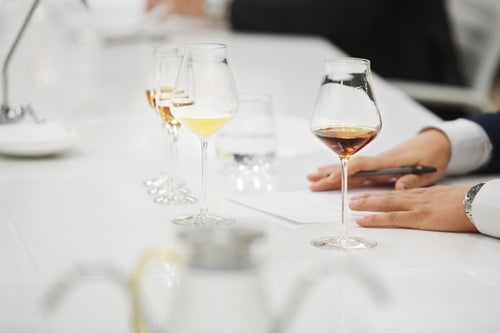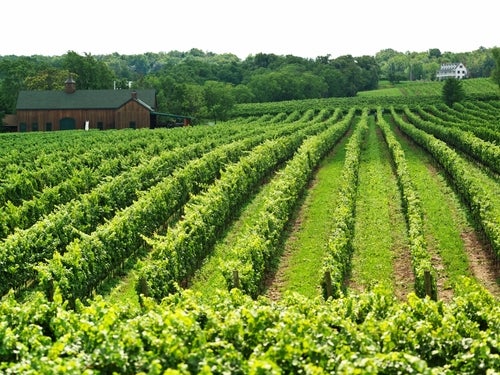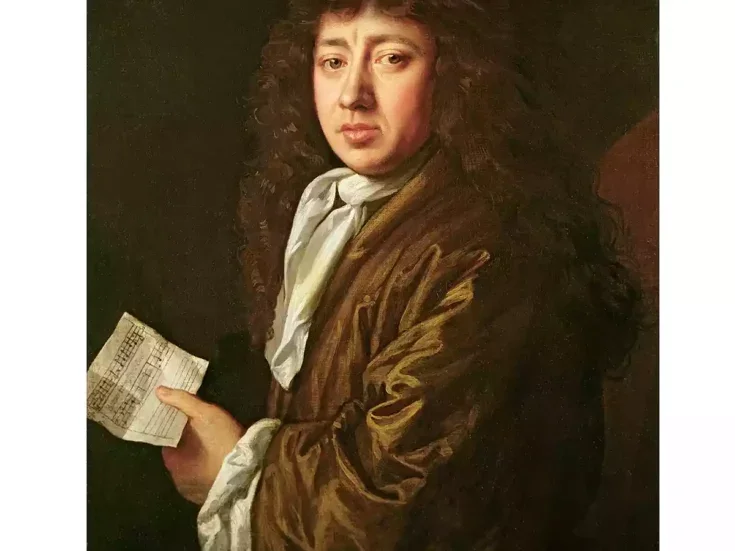One of my regrets is that I couldn’t keep my wine merchant father’s wine library intact.
It wasn’t a grand library, just a few long shelves of wine books that migrated from his office behind the kitchen (he always worked from home) to what my parents called the snuggery, a cosier place than the drawing room, which became, when they eventually got round to redecorating it, a good place for listening to music and relaxing.
Very near the end of his life my father and I spent time there listening together to Mozart and Mahler, his greatest love and his dark romantic passion.
The books defined a period in wine writing that spanned the era of André Simon and the heyday of Robert Parker. Simon’s History of the Wine Trade in England was there, Saintsbury’s Notes on a Cellar-Book, a mid-century edition of Cocks et Féret, various studies by H Warner Allen, Maurice Healy’s Stay me with Flagons, a set of Cyril Ray’s The Compleat Imbiber, more recent volumes in the Faber Classic Wine Library series, including David Peppercorn on Bordeaux and Julian Jeffs on Sherry. Hugh Johnson’s inimitably seductive World Atlas of Wine, Jancis Robinson’s Vines, Grapes, Wines, and Robert Parker’s Bordeaux appeared as fresh and groundbreaking works in that library.

“It wasn’t a grand library, just a few long shelves of wine books that migrated from his office behind the kitchen (he always worked from home) to what my parents called the snuggery.” Photo by Prateek Katyal on Unsplash
Beauty of design, photography, cartography, a scientific approach to ampelography, and numerical ratings had not been features of the wine literature of the 1940s, 1950s, and 1960s. Latterly the library included a few books by the wine merchant’s son.
There was a difficult time after my father’s death when 55 years’ worth of accumulated stuff in a sizeable house had to be cleared in short order so my mother could move to somewhere more suitable. There simply wasn’t anywhere to put most of it. I kept some of the books but many went to the charity shop and I hope they’re still giving pleasure and guidance.
A poet in the wine library
One book I knew I should keep was the Irish-born barrister Maurice Healy’s Stay Me with Flagons: A Book about Wine and Other Things, first published in October 1940, but allaying the gloom of that time with its radiant joie de vivre.
It was reprinted in 1950 after Healy’s early death and then brought out again last year as part of the Academie du Vin Library with an introduction by Fiona Morrison MW. (See also WFW 73, 2021, pp.112–14.) My father had occasionally mentioned it, I had dipped into it, and found Healy infinitely more attractive than Saintsbury, who could be a bit of an old bore.
Healy was a gifted wordsmith; more than that, he was at his most inspired a poet of wine. His approach, it seems to me, and that of Simon, Saintsbury, Warner Allen, and others embodied a humanism in relation to wine, in several senses, which is now generally in abeyance.
Wine for him was not something to be approached with cold (quasi) scientific objectivity, scrutinized for faults, rated numerically, but something to be appreciated—not just appreciated but sometimes rhapsodically hymned and communed with—essentially as an artform. Healy talks about wine in relation to Mozart and Bach as naturally as many contemporary writers discuss pH and brettanomyces.
His most extravagant tasting note—on a Volnay Caillerets 1889—deserves quoting at length.
“Nearly 20 years ago, but I still remember the magnificent shock of that bouquet, rich in mellow perfection, and entirely free from the infirmities of age. I took one sip; I closed my eyes, and every beautiful thing that I had ever known crowded into my memory… The song of armies sweeping into battle, the roar of the waves upon a rocky shore, the glint of sunshine after rain on the leaves of a forest, the depths of the church organ, the voices of children singing hymns, all these and a hundred other things seemed to be blended into one magnificence.”
Of course, all this can sound too Bridesheady, or worse—Healy’s dismissal of Australian wine, for instance, not to mention the liking for martial metaphor (but who can resist “the clang of armour” as a note on Chambertin?).
Healy’s great gift is the ability memorably to characterize wines. Characterization is the skill of a novelist or dramatist, not a scientist, and you could call it the art of combining telling details into the impression of a living, changing being. (Sometimes one detail does the trick, like his aperçu that Graves and Médoc wines are like matte and gloss prints of the same photograph.)
Being, not thing. Healy’s approach, and that of his coevals, recalls Schopenhauer’s advice that one should treat a work of art in the same way one should treat a prince: “Wait for him to speak to you.”
A few contemporary writers are exemplary exponents of that kind of courtesy, but it is not widespread. Apart from anything else, it involves taking one’s time. Véronique Sanders recalled to me recently that Michael Broadbent used to take not just one note on a vintage of Haut-Bailly consumed over a meal, but several, as the wine developed in the glass.
Just the idea of a wine library is for me profoundly centering. A library can contain several different literatures, and there are many literatures of wine. Some are certainly scientific. But others are, in the deepest sense of the word, “literary,” written by amateurs, which is to say, true lovers of their subject.






